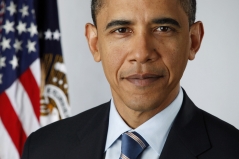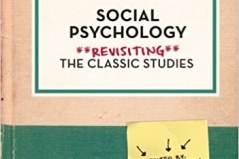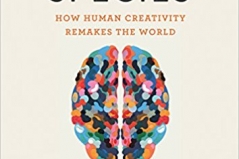Invoking Pocahontas: An act of racism disguised as politics

keywords:
racism / prejudice / Native American / Donald Trump
Invoking Pocahontas: An act of racism disguised as politics

At a recent event honoring Navajo Code Talkers who are World War II Veterans, President Donald Trump stated, "You were here long before any of us were here. Although we have a representative in Congress who they say was here a long time ago. They call her Pocahontas"...
/ moreThe Force is Too Strong with This One? Sexism, Star Wars, and Female Heroes
The Force is Too Strong with This One? Sexism, Star Wars, and Female Heroes

The newest installment of the Star Wars saga, The Last Jedi, was released last month. Despite critical success, the film has been met with a polarized audience reaction online. Although likely not the primary reason for polarization, some...
/ moreCall for Blogs and Bloggers
Call for Blogs and Bloggers
Call for Blogs: In-Mind Magazine
We invite you to submit a blog entry (1,000 words or less) for In-Mind Magazine, the flagship online journal of the In-Mind Foundation. In-Mind Magazine is a peer-reviewed online journal that publishes short reviews of topics in all fields of psychology. Our outlet is unique—articles are written for a broad audience, and intended to inform the general public about psychological trends and research. ... / moreCooperation in social dilemmas: How can psychology help to meet climate change goals?

keywords:
climate change / environment / cooperation / social dilemma / tragedy of the commons / social identity / social norms
Cooperation in social dilemmas: How can psychology help to meet climate change goals?
Effectively managing shared natural resources is essential to protecting and improving our physical environment. This cannot be done without cooperation at international, national and local levels. Bringing together research on social dilemmas from the laboratory and the field gives us hope that we can work together to make a difference: we are social beings not ruled purely by economic motives, but influenced by our social context....
/ moreSelfie-Esteem: The Relationship Between Body Dissatisfaction and Social Media in Adolescent and Young Women

keywords:
social media / self-concept / self-esteem / body image / Facebook
Selfie-Esteem: The Relationship Between Body Dissatisfaction and Social Media in Adolescent and Young Women
Social media platforms like Instagram and Facebook have become ingrained in the lives of countless individuals. With adolescents and young adults, particularly young women, being the primary users of such platforms, it is an important question whether social media use has an impact on self-concept, self-esteem, body image, and body dissatisfaction. Researchers have...
/ moreCall for Book Reviews and Reviewers
Call for Book Reviews and Reviewers

Call for Book Reviews: In-Mind Magazine
In-Mind Magazine is currently seeking reviewers interested in contributing short (< 2,500 words) book reviews. This may include retrospective discussions of classic works in psychology or reviews of more contemporary edited volumes, monographs, or popular books of interest to psychologists. Single submissions are welcome, and a handful of positions are available for those who would wish to be regular contributors. In-Mind Magazineis... / moreCall for Papers
Call for Papers
Call for Papers: In-Mind Magazine
We invite you to submit short review articles for In-Mind Magazine, the flagship online journal of the In-Mind Foundation. In-Mind Magazine is a peer-reviewed online journal that publishes short reviews (about 2,500 words) of topics in all fields of psychology. Our outlet is unique—articles are written for a broad audience, and intended to inform the general public about psychological trends and research. We wouldn't... / moreSocial Psychology: Revisiting the Classics (2nd Edition)
Social Psychology: Revisiting the Classics (2nd Edition)
Human consciousness can be blessing or a curse as it often impels us into self-examination. Hence, people wonder what makes them and others tick? How their attitudes are shaped? How great leaders are made? How does prejudice develop, and how can it be overcome? And the questions can go on and on. Social interactions are complicated and their impact on the individual is profound. Therefore, understanding the social context that motivates behavior becomes necessary to fathom. Social psychology... / more
The Runaway Species: How Human Creativity Remakes The World
The Runaway Species: How Human Creativity Remakes The World
Defining creativity can provide us with the necessary frame of reference to develop better understanding of what creativity is, and its impact on innovation and humanity. It is often assumed that a new product or a new idea reflects originality, but does it? ... / more
The Face of Leadership: How CEOs’ Facial Appearance Predicts Business Success

keywords:
face perception / profit / dominance / leadership style / personality
The Face of Leadership: How CEOs’ Facial Appearance Predicts Business Success
Recent research in social psychology has demonstrated that the facial appearance of Chief Executive Officers (CEOs) and other business leaders predicts their companies’ financial performance. In this article, we review initial evidence illustrating the relation between CEO facial appearance and corporate success. We then delve into more recent research on how this relationship varies by economic climate, leader ethnicity, and CEO sex. Further studies are discussed that examined how facial cues related... / more






